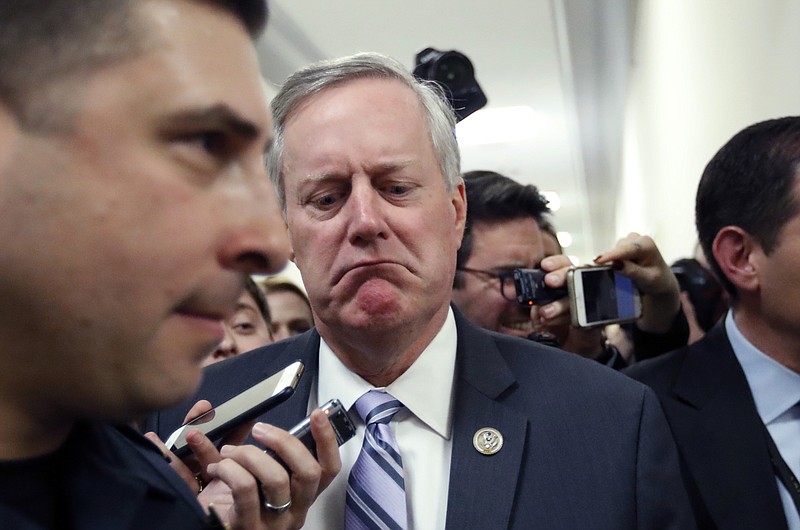House Republicans failed spectacularly last week trying to repeal Obamacare, in part because President Trump and Speaker Paul Ryan evidently thought it unnecessary to embrace a political premise that practically oozes common sense.
That truism holds that some 80 percent of Americans define themselves as political moderates on the political spectrum, leaving far left and far right factions to quibble over crumbs.
Yet in their desperate effort to put together a GOP majority that would deliver the repeal, Trump and Ryan tried to appease the House Freedom Caucus with one concession after another. The problem, and this should have surprised no one, is that the more that faction won by stubbornness, the more its leaders tried pushing Trump further to the right.
That suited the repeal faction just fine - until it didn't. House GOP leaders finally had enough of the caucus' embrace of a political homonym - "Make America Grate Again," leading Trump and Ryan to pull the bill, but with no way to predict the eventual impact.
The repeal effort occurred seven years to the day after President Barack Obama signed the legislation, so the GOP surely would have enjoyed killing the law on an anniversary.
But now, thanks to the Iron Law of Unintended Consequences, it is safe to assume that many Republicans fear the repeal defeat could undermine the administration's congressional agenda. That includes tax reform legislation, the first in three decades.
Their fear is understandable because by instructing Ryan to toss the bill, Trump got rolled.
A consensus among congressional Republicans was that he had not bothered to get a clear understanding of the bill's provisions, opting for the conceit that he could best the caucus by the force of his magisterial will.
After all, had he not proclaimed himself the Artist of the Deal?
Finally, it obviously occurred neither to Trump nor Ryan that it might make more sense to try improving the Obamacare structure rather than replace it with - what, exactly? Nevertheless, even long time Trump watchers were probably surprised when, with stunning arrogance, he gave House Republicans an ultimatum: Vote for the repeal or suffer some unexplained consequences.
Not being stupid, members called his bluff, having concluded he was trying to bully the House in the same way he dealt with recalcitrant subcontractors.
It was a spectacular defeat but now more serious challenges loom on the horizon, not the least of which is a pivot to the tax reform bill.
In trying to jam the repeal bill through the House in barely three weeks, the Trump team ignored the rage erupting in town hall meetings where voters - terrified by the prospect of losing what coverage they had - lacerated GOP congressmen with protests.
Even moderate Republicans were unnerved by the nonpartisan Congressional Budget Office's conclusion that some 24 million Americans could soon be uninsured.
The coming fight over tax reform could make the repeal effort a dry run for chaos. Nearly every tax provision in the tax code has its own constituencies, so the administration will be fighting fires on every front.
There is no point predicting outcome of tax reform right now. Given that uncertainty, members of both parties should agree that in governing for the benefit of most Americans, "compromise" is vastly superior to "scorched earth" tactics. President Ronald Reagan and Speaker Tip O'Neill were fierce political contenders but they didn't claim political omniscience. To believe otherwise is to poison the well of good government.
Meanwhile, the calendar reminds us that politics is cyclical. The certainty of impregnable majorities is usually a precursor of defeat. And who's surprised there's been a call for Ryan to resign?
Michael Loftin is a former editor of The Chattanooga Times editorial page.

